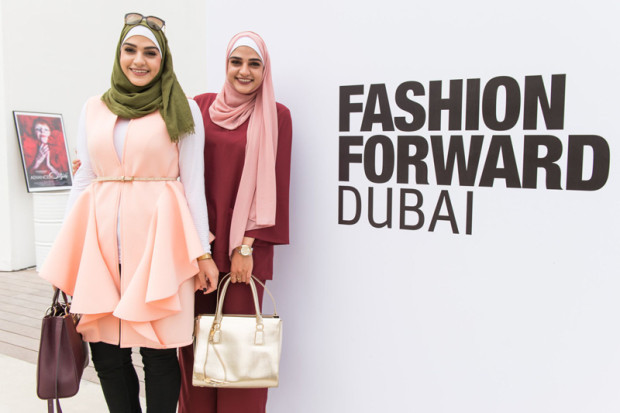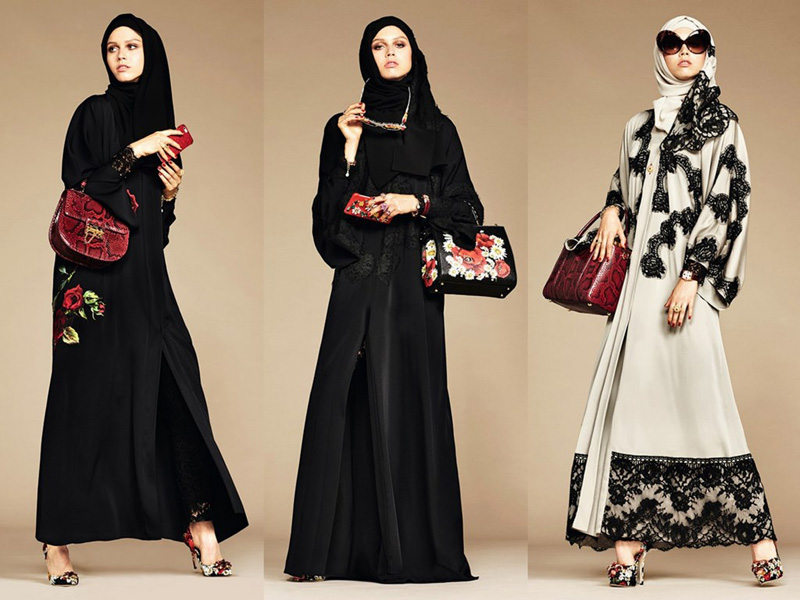By Fundación de Cultura Islámica · On April 2, 2016
During these days, the controversial statements made by two well-known people: Minister of family, children and women’s rights, Laurence Rossignol, and co-founder of the brand Yves Saint Laurent, Pierre Berge sparked the social networks in Muslim areas.
On the one hand, Rossignol released in lemonde.fr that women who decided to wear the veil were comparable to “black Americans who were in favour of slavery. According to Rossignol’s opinion, brands that sell “Islamic” clothes are not only “irresponsible” but also “promote the closing of the female body”.
Furthermore, Bergé before launching the clothing line Abaya claimed in harpersbazaar.es that initiatives as Dolce & Gabbana first collection for Muslim women (especially the Gulf), “take part in the enslavement of women”. Moreover, in the radio station Europe 1 Bergé argued: “I’m shocked. Having worked with Yves Saint Laurent nearly 40 years I began to believe that fashion designers are there to make women look beautiful and free, and not to defend this dictatorship, this abominable way to hide the woman “.
Supremacist arguments
 According to many people, both statements, which emerged almost simultaneously, have clear Islamophobic connotations, if not racist. Indeed, after the alleged claim to “reveal” the Muslim woman subtly supremacist arguments that place unequivocally the status of “slave” the women who are wearing body covered, while Western women consider showing your body is synonymous of liberated woman. From another perspective, these statements help to extend the cliché that assimilates the Muslim woman as a woman incapable of rebelling and have their own convictions. They give no scope to consider that this form of dress may arise from a personal choice, and not an imposition, as valid and respectable as others. There is no consideration either that Western fashion itself may be vexatious for a few Muslim women who see it as another form of objectification and instrumentation of the female body, due to the tyrannical canons concerning size and aesthetics.
According to many people, both statements, which emerged almost simultaneously, have clear Islamophobic connotations, if not racist. Indeed, after the alleged claim to “reveal” the Muslim woman subtly supremacist arguments that place unequivocally the status of “slave” the women who are wearing body covered, while Western women consider showing your body is synonymous of liberated woman. From another perspective, these statements help to extend the cliché that assimilates the Muslim woman as a woman incapable of rebelling and have their own convictions. They give no scope to consider that this form of dress may arise from a personal choice, and not an imposition, as valid and respectable as others. There is no consideration either that Western fashion itself may be vexatious for a few Muslim women who see it as another form of objectification and instrumentation of the female body, due to the tyrannical canons concerning size and aesthetics.
Considering slave women every woman who choose to wear a headscarf or an abaya, and their designers as accomplices of slavery, it is as simplistic as to assert that all Western fashion is complicit in many young anorexic disorders.
Or would be that, as the great writer Fatima Mernissi stated, “the harem of the West is size 28”?.
















No Comments